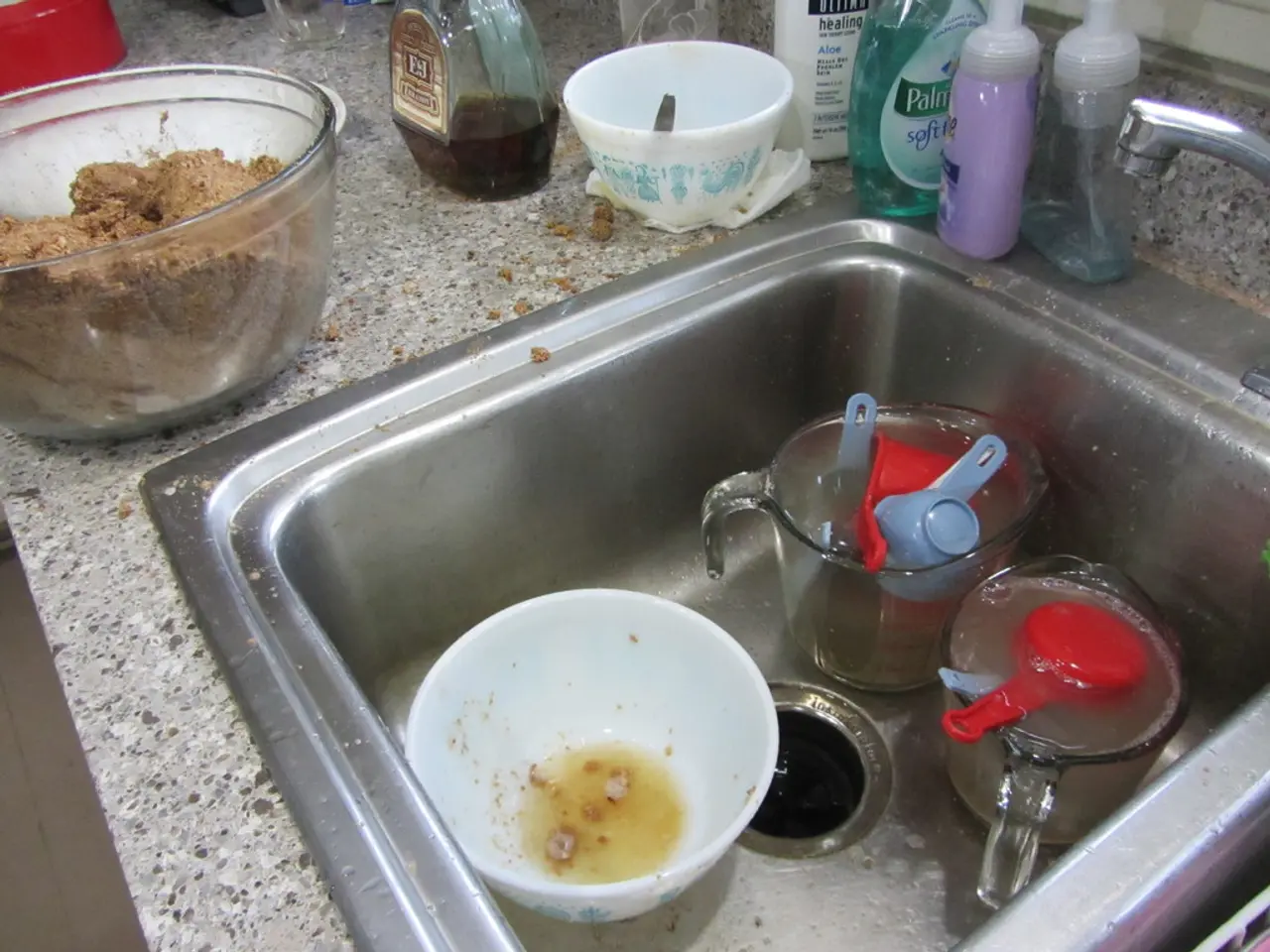Potential Health Risk: Millions of Travelers Alerted over Harmful Pathogens
In recent developments, both Germany and Greece have reported incidents of water contamination in popular tourist destinations. The contamination, which has been found in hotels and public buildings, is primarily due to the presence of bacteria and germs such as E. coli and fecal germs, as well as Legionella bacteria.
In Germany, the contamination issue has been linked to leaky pipes or unsanitary pipework. The risk of mass infection is relatively low, but some people have already been infected. As a precautionary measure, tourists are advised to avoid using the water from hotels for showering, drinking, or making ice cubes. Supermarket water can be used as an alternative for drinking and making ice cubes.
In Greece, the contamination has extended to the Greek island of Crete, where approximately 50% of water samples taken contain Legionella bacteria. The risk of legionella spreading is higher in hot weather, making the current heatwave a cause for concern. Legionella can cause severe respiratory infections, up to a life-threatening lung infection in humans.
Remnants of paint have also been found in the water, possibly due to local industry. However, timely follow-up examinations ensure that the water becomes clean again soon.
Authorities in both countries have instructed hotels to disinfect their water systems and increase the temperatures of hot water installations to kill Legionella, which dies at a temperature of 60 degrees Celsius.
Tourists are urged to follow local health guidelines and take precautions against heat-related illnesses during their visits to these countries. For specific water safety advisories, it's always a good idea to check with local health authorities or consult official travel advisories for the most up-to-date information.
It's worth noting that the current heatwaves in Europe have led to high temperatures in both Germany and Greece, with reports of the Rhine River experiencing lower water levels due to the heatwave in Germany [3], and temperatures reaching over 40°C in parts of southern Europe [4]. While there are no specific advisories for waterborne germs, it's essential for tourists to stay hydrated and avoid exposure to extreme heat, which can exacerbate health issues.
A recent incident has come to light where a British tourist reportedly fell into a coma due to contaminated water on the island of Crete. This underscores the importance of adhering to local health guidelines and taking precautions when traveling.
In conclusion, while there are no specific water safety advisories for tourists in Germany and Greece at present, it's crucial to be vigilant and follow local instructions regarding the drinking water. By doing so, travelers can ensure a safe and enjoyable holiday experience.
- In addition to the water quality issues, it's crucial to consider other aspects of health and wellness, such as mental health, while traveling.
- While contaminated water can pose a significant risk to physical health, especially in the case of respiratory-conditions like Legionnaires' disease, maintaining fitness-and-exercise and a healthy lifestyle is equally important for overall well-being.
- As the summer heat intensifies and environmental-science concerns, like the current heatwaves, increase, it's also essential to be aware of the impact on mental health and well-being, as extreme temperatures can create additional stress and strain.
- To ensure a holistic approach to health and wellness during travel, tourists should follow local guidelines, including those related to water safety, exercise regularly, and take care of their mental health by staying hydrated, cooling down when necessary, and seeking medical attention if needed.




